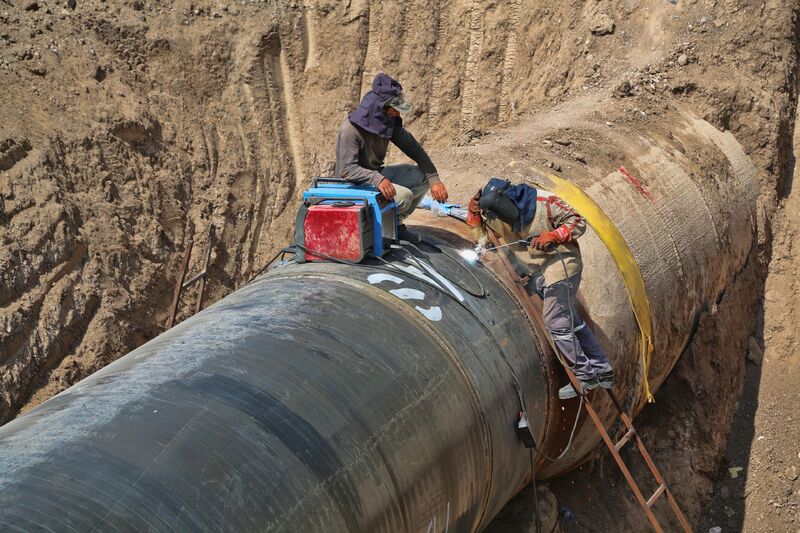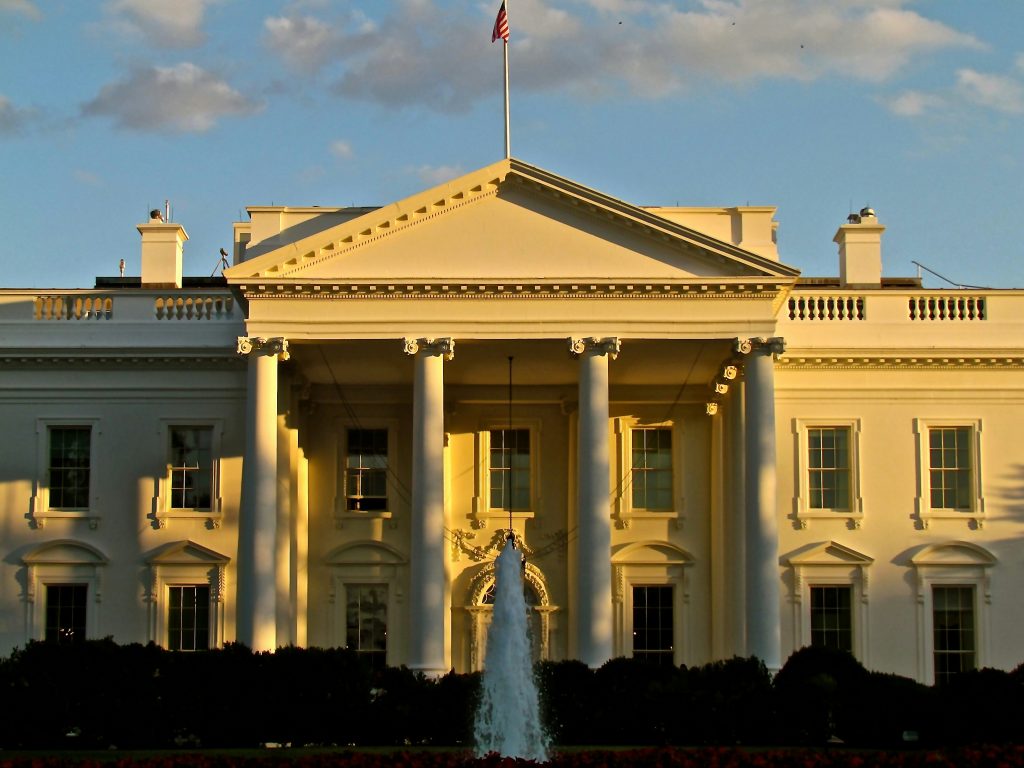Next KXL Chapter: State Affairs

By Yuki Taylor*
TC Energy Corp. v. United States is an arbitration proceeding in the International Centre for Settlement of Investment Disputes (“ICSID”) brought by a Canadian corporation against the United States over the terminated Keystone XL (“KXL”) oil pipeline expansion plan. KXL was a proposed extension of the existing cross-border oil pipeline system owned by TC Energy, formerly known as TransCanada Corporation.
The Keystone pipeline, commissioned in 2010, runs crude oil from tar sands in Alberta, Canada, to refineries and distribution hubs in Illinois, Texas, and Oklahoma. KXL was designated to be the fourth expansion of the Keystone pipeline. It was planned on a direct route from the Canadian tar sands reserves, through Montana and South Dakota, to Steel City, Nebraska. This latest extension project was the subject of persistent large-scale protests due to concerns over the protection of indigenous land rights, the risk to wildlife habitats and ecosystems, and the endangerment of public health due to the highly destructive characteristics of the dirtiest fuel in the world.
Both chambers of Congress passed the Keystone XL Pipeline Approval Act at the beginning of 2015, but President Obama vetoed the act, as he considered the project a threat to the national interest of the United States over security, safety, and the environment. However, immediately after taking office, President Trump revived the project, issuing a presidential memorandum to expedite approval of the KXL project in January 2017, followed by a presidential permit two months later. The presidential permit was further superseded by a new presidential permit in March 2019, immediately authorizing TC Energy to construct the KXL pipeline amidst intensified protests and accumulating lawsuits against the executive branch.
The political upheavals concerning KXL involving all three branches of both local and central governments during the Trump presidency were instantly ended by President Biden on his first day in office, January 20, 2021, when he revoked his predecessor’s 2019 permit. Several months later, TC Energy completely scrapped the KXL project.
The Canadian energy giant then submitted an arbitration request to ICSID on November 22, 2021, seeking damages as a victim of a “regulatory roller coaster.”[1] It filed the request pursuant to Annex 14-C of the U.S.-Mexico-Canada Agreement(“USMCA”), the successor of the North American Free Trade Agreement (“NAFTA”), and argued that President Biden’s decision to revoke the 2019 presidential permit was “unfair and inequitable, discriminatory, expropriatory, and violated U.S. obligations under Chapter 11 of NAFTA.”[2] TC Energy
specifically alleged that the revocation of the 2019 permit, “breached U.S. obligations under Articles 1102 (National Treatment), 1103 (Most-Favored-Nation Treatment), 1105 (Minimum Standard of Treatment), and 1110 (Expropriation and Compensation) of NAFTA.”[3]
However, NAFTA had been terminated and superseded by the USMCA in 2020. Although, like NAFTA, the USMCA contains a provision for foreign investment ICSID arbitration without exhaustion of local remedies under Annex 14-D, Canada opted out of that direct arbitration provision. Accordingly, since July 1, 2020, Canadian investors in the United States and U.S. investors in Canada have lost the option to commence direct ICSID arbitration proceedings against the host states under the USMCA. Speculatively, Canada’s withdrawal from the direct arbitration provision was attributed to its “bleak scorecard” in ICSID investor-state arbitrations.[4] Not only has Canada been subject to more investor-state claims under NAFTA compared to the other two states, but Canada has lost a number of such cases, in contrast to the United States, which has never lost a NAFTA case.[5] Further, Canadian investors also had a low success rate.[6] As such, Canada has paid comparatively more in damages to foreign investors, while Canadian investors have recovered relatively less against other host states.[7]
TC Energy nevertheless requested ICSID arbitration, invoking Annex 14-C to Chapter 14 (Investment) of the USCMA, titled “Legacy Investment Claims and pending Claims.” Chapter 14 contains a three-year dispute resolution sunset clause, i.e., Annex 14-C, providing investors with direct ICSID arbitration opportunities for legacy investments in existence when the USMCA entered into force on July 1, 2020.[8]
On January 11, 2023, the United States submitted its first response, requesting bifurcation of the international investor-state arbitration proceedings to allow the tribunal to render a decision on jurisdiction before addressing the merits of the claims.[9] The United States argued that, because the construction permit was revoked on January 20, 2021, more than six months after the termination of NAFTA, the United States could not have breached the substantive obligations of NAFTA.[10] Instead, any claim would have to relate to the investor’s rights under the USMCA, which are similar to those in NAFTA, but for which there was no direct arbitral jurisdiction between the United States and Canada.[11] The United States asserted that “NAFTA does not contain a survival provision obligating a party to continue abiding by its terms for some period post-termination.”[12]
In support of its argument, the United States cited Article 70(1)(a) of the Vienna Convention on the Law of Treaties to which the United States is a nonparty, under customary international law, providing in relevant part that “[u]nless the treaty otherwise provides or the parties otherwise agree, the termination of a treaty under its provisions or in accordance with the present Convention: (a) releases the parties from any obligation further to perform the treaty.”[13] The United States further cited Article 13 of the International Law Commission’s Articles on Responsibility of States for Internationally Wrongful Acts: “An act of a State does not constitute a breach of an international obligation unless the State is bound by the obligation in question at the time the act occurs.”[14]
Annex 14-C does not provide any additional description for greater certainty regarding the eligibility of alleged beaches, unlike the defined legacy investment. However, the language is deemed rather unambiguous, stating that “[e]ach Party consents, with respect to a legacy investment, to the submission of a claim to arbitration in accordance with . . . this Annex alleging breach of an obligation under: Section A of Chapter 11 (Investment) of NAFTA 1994.”[15] Although the obligations of a host state on issues concerning national treatment,
most-favored-nation treatment, minimum standard of treatment, and expropriation and compensation for foreign investors are analogous and continued from NAFTA to the USMCA, breaches of obligations eligible for direct ICSID arbitration appear to be limited to those under NAFTA in the text. The three-member tribunal chaired by a French arbitrator will soon issue a decision on the U.S.’s jurisdictional objections by April 13, 2023, according to the procedural calendar prepared for the case.
* J.D. Candidate, Class of 2023, Sandra Day O’Connor College of Law at Arizona State
University.
[1] Request for Arbitration at 1, TC Energy Corp. v. United States, ICSID Case No. ARB/21/63 (ICSID, filed November 22, 2021), https://www.state.gov/wp-content/uploads/2022/05/TCE-v-US-Request-for-Arbitration-Nov-22-2021.pdf.
[2] Id.
[3] Id. at 8.
[4] See Daniel Garcia-Barragan et al., The New NAFTA: Scaled-Back Arbitration in the
USMCA, 36 J. INT’L ARB. 742, 739–54 (2019).
[5] Id. As of the time this article was published in 2019, “Canada has lost eight such cases.”
[6] Id.
[7] Id.
[8] Request for Arbitration at 1, TC Energy, supra note 1; Agreement between the United States of America, the United Mexican States, and Canada (USMCA) Ch. 14 Investment, Annex 14-C (entered into force July 1, 2020), https://ustr.gov/sites/default/files/files/agreements/FTA/USMCA/Text/14-Investment.pdf.
[9] Request for Bifurcation, TC Energy, ICSID Case No. ARB/21/63 (Jan. 11, 2023),
http://icsidfiles.worldbank.org/icsid/ICSIDBLOBS/OnlineAwards/C10297/DS18303_En.pdf.
[10] Id. at 9.
[11] Id. at 9-10.
[12] Id. at 6.
[13] Request for Bifurcation at 5-6, TC Energy, supra note 9; Vienna Convention on the Law of Treaties art. 70(1)(a), 1155 U.N.T.S. 331 (entered into force Jan. 27, 1980), https://legal.un.org/ilc/texts/instruments/english/conventions/1_1_1969.pdf.
[14] Request for Bifurcation at 9, TC Energy, supra note 9; Int’l L. Comm., Articles on Responsibility of States for Internationally Wrongful Acts, art. 13 (U.N. Doc. A/56/49(Vol. I)/Corr.4 (2001), https://legal.un.org/ilc/texts/instruments/english/draft_articles/9_6_2001.pdf.
[15] USMCA, supra note 8, at Ch. 14 Investment, Annex 14-C.


